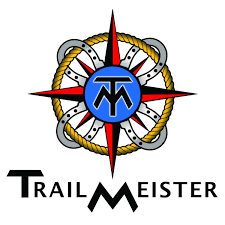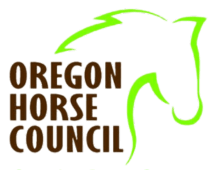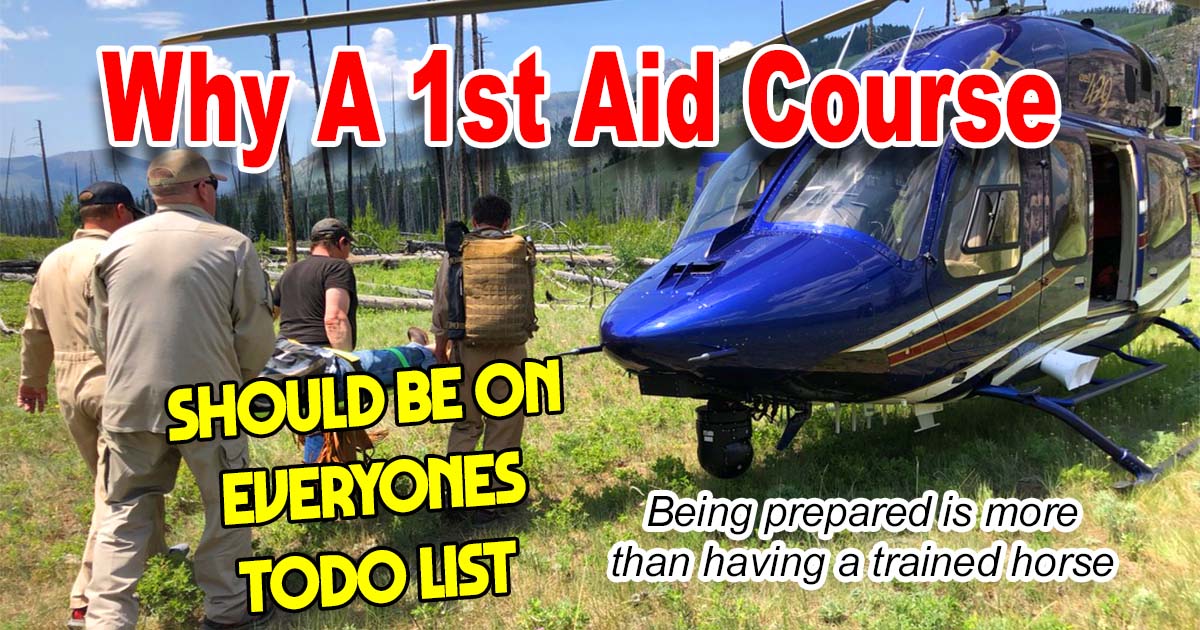I’ve spent enough time riding, camping, and packing in the backcountry to sometimes become complacent. Complacency isn’t a badge of honor; it’s a significant failure point on my part. Every so often, I start cutting corners, trying to hurry along a process or task that shouldn’t be rushed. I’m not alone in this failure. As humans, we all try for the seemingly easy way out of a situation or circumstance.
Sometimes the dice roll in my favor, and all is well. Occasionally they don’t. Taking pictures while riding and focusing on the camera instead of my animal worked fine until bees entered the picture. Hanging onto the lead of pack string when I should have been concentrating on my mule during a river crossing that suddenly became “sporty.”
Sometimes the evacuations involved rigging a makeshift sling from a bandanna before starting the slow trudge out. Others resulted in calls into SAR and waiting for a helicopter. While the rescues differed, they’re always complicated and exhausting as you’re pushed to your limits, mentally and physically. In all these situations, corners were cut that should not have been. A solid background of First Responder / 1st Aid knowledge made a big difference in the outcome.
Unplanned events happen. The question is not if but when they occur and whether you are prepared to deal with the aftermath.
The importance of knowing where you’re going
During my trail riding and horse camping clinics, I repeatedly stress the necessity of investigating the places they’ll be in and thinking about the consequences of an injury. Some areas may have helicopter rescue service that will pluck you off the mountainside, but that should never be your first line of defense. A SAR team might take hours to get to you, or it might be too stormy for aviation assets to fly.
Post Covid more people are getting into the outdoors than ever. SAR crews have been breaking call-out records left and right while balancing volunteer burnout. These volunteers are stretched thin. SAR crews have the right to tell you that you’ll have to wait if a more pressing rescue needs their attention. Are you prepared to stop the bleeding, splint a fracture, and keep an injured partner alive until more advanced care is available?
The Knowledge You Want To Have
You won’t learn to do this in a horsemanship course. Nor will you learn CPR, which is often necessary for heart attack victims who may not be breathing. At a minimum, you’ll need to take an American Red Cross CPR class to gain these vital skills. I suggest taking it a step further for either a Wilderness First Aid or Wilderness First Responder course.
Horse riding and camping is, unfortunately, a pay-to-play activity. I wish there were a way around the cost of entry to the fabulous sport we’re blessed to engage in. Unfortunately, to ride and camp safely, you need to become educated. We only drive cars after taking a driver’s ed class and passing a test. Think about stepping out onto the trail in the same way.
So, if you’re new to trail riding this season, at a minimum, you should sign up for a 1st Aid and CPR course. Then, before you close your web browser, look up wilderness medicine classes in your area. If you’ve played in the backcountry for years and still haven’t taken a wilderness medicine class thank your lucky stars that you’ve made it this far.
As always, for more information on this and many other essential topics for trail riders and horse campers, visit us at www.TrailMeister.com. You can also get a copy of the best-selling book “The ABCs of Trail Riding and Horse Camping,” which features over 180 topics for the active or aspiring trail rider.

TrailMeister is the world’s largest horse trail and camp guide. With all of the info that you need on thousands of horse trails and camps across the US and Canada.

